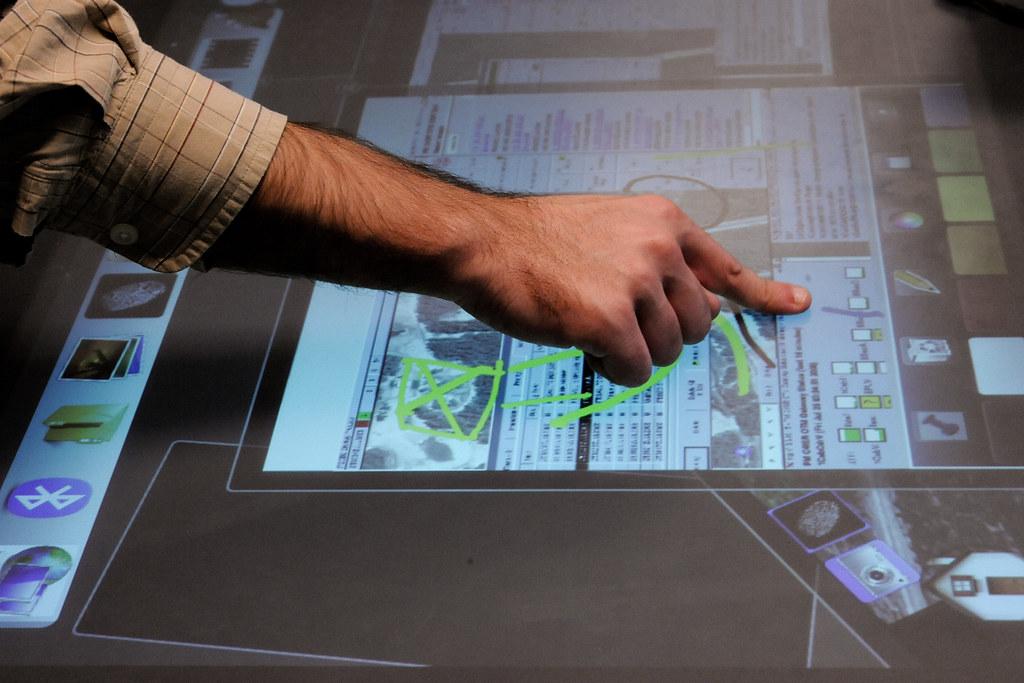Computer science is one of the most rapidly developing fields, with numerous work opportunities and promising career prospects.
How to become a computer scientist? If you’re thinking about going into this field, studying some tips beforehand is necessary.
In this post, we explain the responsibilities of a computer scientist, discuss what they do, and provide some guidance on how to get started.
Let’s read on to discover!
What Is a Computer Scientist?
A computer scientist is a professional who works in multiple sectors, including science, technology, and business. They may focus on one area, such as statistics, coding, or business.
A computer scientist creates new products by developing innovative ideas and solving computer-related issues.
Influential scientists are often able to program in a variety of languages and may even create their own.
They may also research and develop techniques and deal with artificial intelligence and data systems.
These individuals frequently create research papers and offer their discoveries to executives or the technical community to identify new advancements.
They are very collaborative and frequently interact with other technical experts to accomplish their goals.
What Does a Computer Scientist Do?
These scientists develop hardware and software components, solve computing-related issues, evaluate and develop new systems, and frequently specialize in fields such as data science.
Other frequent duties performed by a computer scientist involve:
- Managing product establishment and development projects
- Upgrading hardware or software by improving a system’s computing efficiency and power
- Examining and debugging computing software
- Utilizing and developing coding languages
- Working with other coders and programmers, offering leadership to the projects
- Improving and evaluating algorithms, data, and software structures
Other experts may specialize in repairing and maintaining the mechanical systems that allow technology devices to operate properly.
On the other hand, computer scientists often deal with analyzing and debugging a system’s architecture and internal operations.
How To Become a Computer Scientist
Although there are different paths to becoming a computer scientist, most aspiring individuals pursue some variant of this standard approach.

Learn more about how to start your profession in the sections below.
1. Earn a degree
When it comes to acquiring a diploma, technology is generally a complicated topic. Many self-taught coders and network engineers can find good jobs.
Others enroll in free online programs or boot camps to pursue their goals. However, this path is not popular.
- Associate
If you’re just getting started in the field and aren’t sure if it’s the appropriate profession for you, an associate degree might be an excellent starting point.
An associate degree, which lasts two years, is accessible. Then you can work as a coder, developer, or IT specialist.
- Bachelor
This degree is the most popular option for students who want to engage in this field. Many companies require this qualification.
This program typically takes four years to complete and covers many advanced math and science subjects.
- Master
If you want to climb up your career ladder and dig more into the field, a master’s degree should be your way.
The program focuses on specialized and emerging fields, such as artificial intelligence, machine learning, and development (R&D) projects.
These complex subjects require people who possess both the theoretical and fundamental understanding that a primary degree gives and the ability to focus on the sector’s intricacies.
2. Earn some certificates
Certificates have become quite essential in the technology arena. Employers in technology want to know that you have job-relevant competencies.
Network administrators, web admins, and security experts all require certificates that are firmly attributable to their jobs.
You can decide which specialty you want to follow as you get more acquainted with the discipline of computer science.
You may then talk to other students and academic counselors. Then, research those subjects to figure out which credentials are best for the job you want to take in the future.
3. Develop your skills
To be eligible for promotion, you need a mix of hard and soft abilities. If you want to pursue this career path, try to sharpen these skills so you can show off your expertise and knowledge while applying for positions that attract you.
Hard skills
Hard skills are those that make you qualify for your position. You can apply these skills directly to the duties you’ll be doing.
Many of the hard skills required in IT are technical. As a candidate for a computer scientist position, make sure you include them in your resume.
- Software development
Understanding software fundamentals and development is a beautiful hard skill to have on your CV if you work in this field.
The skill demonstrates that you know how to interact with others to build codes and programs, debug and evaluate them, and eventually develop a usable software application.
- Technology knowledge
To succeed in an IT career, you must have fundamental technology and computer skills. Examples are hardware, programming, spreadsheets, operating systems, and presentations.
- Technical writing
In the IT industry, technical writing plays a very specialized role. You use it to provide IT-related explanations and guidance.
Companies want you to have skills and knowledge for your job. However, they also need you to describe your work to others.
- Mathematics
Math is essential. It assists you in computing formulae and issues as elements of your code and development, whether it’s calculus or statistics.
Math can also help you demonstrate that you have the ability and knowledge to address complex situations that may arise.
- Data analysis
Any IT job requires you to interpret data. Hence, try to master this skill and include it in your resume.
Then, the recruiters know that you are eager to do more than just do the job. You want to understand how the work affects the outcomes and following actions.
Soft skills
People skills are another term for soft skills. They are the intangible traits you can contribute to a profession. They can help you to interact with people effectively.
These skills influence your productivity and ability to execute technical tasks.
- Creativity
Some people believe that computer science is just logical and boring. However, this idea is not accurate.
Solving problems and constructing functional, attractive online apps and web pages require a lot of creativity.
- Communication
Communication is critical. This soft skill is important for interacting with consumers, colleagues, and managers.
You must be able to show that you can present your project and objectives to others.
Moreover, you will join some projects, which require you to work with others. Without communication skills, you will get stuck.
- Time management
There is always a deadline, priority, and rapid transitions between projects in this profession.
The only way to help you deal with these deadlines is effective time management. Then, you are ready to face all the challenges.
4. Look for job opportunities
Now, it’s time to start looking for a job in your chosen field after obtaining enough knowledge, technical skills, and research experience.
New career options bring you networking communities and an understanding of how the business is rapidly changing.
You may use your theoretical expertise to solve real-world challenges, resulting in more productive and efficient technologies.
5. Advance your skills
This field requires you to update your knowledge and skills because there is always something new established every day.
Advancing your skills is also vital if you want a job promotion. To upgrade your resume, you can earn a higher degree, such as a master’s degree.
You can also take some extra online or offline classes to learn more about a specific subject, such as coding or web development.
When working on projects at work, the theories you study from these courses can help you improve your experimenting, problem-solving, and critical thinking abilities.
Try to use different approaches and theories of practice related to data analysis and other fields you are learning about.
Another great way to sharpen your skills is to get feedback from your co-workers and managers.
Feedback on your methods for completing projects, using technical tactics, and meeting overall goals can provide you with valuable advice about your skill development.
Career Opportunities for Computer Scientists
Given the rising prevalence of technology in modern culture, computer science majors have many career choices.

Salary
A computer scientist’s average yearly salary is $165,940 per year. However, these figures may differ.
Hardware and software development, computing architecture, engineering, and biological sciences are all possible career pathways for scientists.
Salary for computer scientists varies depending on region, job, and experience. In general, though, the rate is high.
According to the Bureau of Labor Statistics (BLS), some of the most popular careers for graduates pay well into the six figures.
The median income for these scientists was $145,364, while the average salary for network architects was $126,222.
Software engineers, quality assurance specialists, and testers generally earn a lot of money. In 2024, their average salary was $130,000.
Demand
According to the BLS, computer scientists’ employment prospects will increase by 22% between 2020 and 2030, overtaking the average growth rate for all occupations.
As businesses continue to focus on and expand their use of technology systems, the need for these professions may grow.
Frequently Asked Questions
Many people are devoting themselves to this career.

Here are some of their frequently asked questions.
1. How many years does it take to be a computer scientist?
Depending on the program you choose, the courses generally take two to four years.
Some students can move to the competitive bachelor’s course after they have got the associate degree. Hence, the process will be longer.
2. How hard is it to become a computer scientist?
It depends mainly on the student. All well done is difficult, but the task will be thrilling for students who love this major.
This major is challenging since it requires a firm foundation in technical topics such as mathematics and programming.
3. Is computer science a good job?
Yes. There are many advantages to choosing this career path.
First, it’s one of the highest-paying jobs. If salary is your top concern, this major is for you.
Second, the demand for this job is increasing. Hence, you will have more job opportunities. The job prospect is also promising.
Third, you always have chances to learn new skills and earn more knowledge because IT changes every day.
Last but not least, you will find satisfaction when working. You have to study and develop new products yourself. These duties make it a rewarding job.
4. Does computer science pay well?
According to our research, the average annual salary for computer scientists is $165,940. In the United States, this go up to $246,859.
The report said that the average hourly pay in 2024 was $79.78. Those with the lowest rates, on the other hand, made an average of $83,194 a year.
The top ten percent received a total of $118.68 per hour, while the bottom 10% received $40.00.
5. Are computer scientists in demand?
Computer scientists’ demand is expected to expand by 22% between 2020 and 2030, substantially faster than the average for all professions. Experts predict that there will be an average of 3,200 openings for this job every year.
6. Is computer science a lot of math?
Because this major is pretty large, the type of math you’ll need to acquire your degree differs considerably based on your curriculum and professional career.
However, most degree courses need a fundamental grasp of calculus, discrete mathematics, algebra, and statistics.
Conclusion
Given the vast range of abilities employers need, getting started as a computer scientist might be challenging.
But don’t let such difficulties stop you. The rewards deserve your time and effort because you are working for one of the most promising professions.
Hopefully, we have given all you need to pursue this career path. For any further information, please feel free to ask. Thank you for reading!
